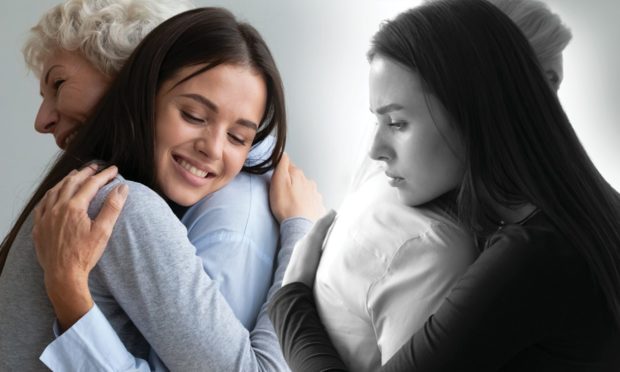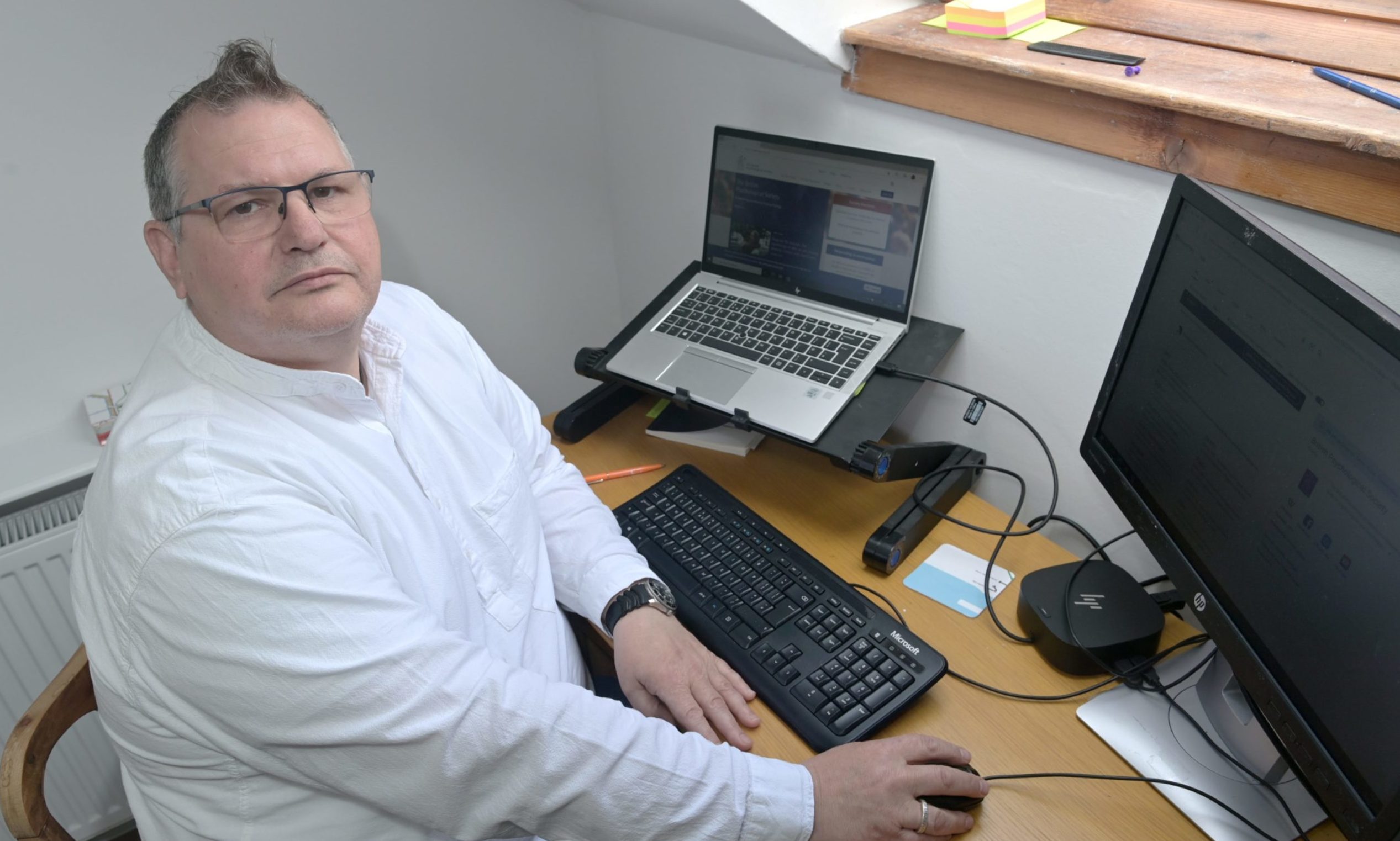For the first time in over a year, people are allowed to hug their family and friends again.
But will we feel comfortable cuddling? And will it ever feel normal again?
First Minister Nicola Sturgeon warned that physical contact “does still carry risk” when she lifted the ban on hugs.
And Prime Minister Boris Johnson admitted his own cuddles will be given out with “caution and restraint”.
For many of us, the easing of physical distancing rules will be the first time we’ve been close to another human outside our own homes for 14 months.
So it may come as no surprise, no matter how much we’ve missed our friends and relatives, that many of us won’t be leaping into each other’s arms just yet for a cosy embrace.
Programme leader of psychology at Inverness College UHI, Norman Wilson, said we need to be more aware that people will have a new set of rules for social interaction.
And he suggests establishing these barriers will be important as we step out into the world again now lockdown restrictions are easing.
He said: “Social skills have changed a huge amount during the pandemic.
“We spend lots of time on Zoom and Teams and when you’re in one of those meetings with several people on a screen you tend to stare at the person who is talking. You spend a lot of time staring at people and you wouldn’t normally do that in real life. That’s something we will have to adapt to.
‘There will be people who were great huggers who want to maintain social distance’
“In terms of hugging it’s going to be a strange thing because there’s going to be a whole new set of rules out there for people, not just rules imposed by the government, but rules we have ourselves.
“There will be people who were great huggers before who may have changed their opinion and want to maintain some form of social distance.”
Norman believes we’ll need to adapt to coming out of lockdown and different ways of interacting with others.
He said: “One of the things we will need to be aware of are people’s new barriers and new sets of rules. And it will be easiest to just ask ‘Are you OK with me sitting so close to you? And are you OK with hugging?’
“Humans are extremely good at interpreting body language so hopefully this will become a natural thing without going through the pain of it being awkward all the time.”
Visualising positive moments will make it easier to cope with restrictions being eased
Norman believes the anxieties people feel about resuming their normal lives will be worse than the reality.
And he explained that people have patterns of behaviour, known as schemas, which can be used to help them cope in difficult situations.
He said: “One of the things people can do to prepare is to work through their schema – visualise how they are going to meet people and engage with them again after such a long time which will help make it an easier process.
“We’re allowed to hug but it’s not compulsory. There are some people who will be grateful they’ve not had to hug until now and are dreading people giving them a big hug. It’s important to remember that not everybody likes a hug.
“The issue most people have is actually the anxiety of going out to do it, leaving their homes, going out to engage with people. The anxiety about that is probably greater than the reality of doing it.
“It’s like when you are very anxious about going out to do an exam and the exam ends up not being that bad.
“It will be a bit like riding a bicycle, you will wobble a bit at first but eventually you will get there.”
Hugging has health benefits
Physical contact can be a vital part of life for many of us as humans are social creatures.
Cuddling can be good for us because it releases Oxytocin, the same feel-good hormone released from a mother and child during breastfeeding, and in the brain of a dog when it is petted.
James Anderson, a clinical neuropsychologist at Aberdeen Royal Infirmary, said it was important for people to move at a slow and steady pace if they have anxieties about coming out of lockdown.
He said: “We know that contact with family and friends, and shared and physical activities are one of the things that give life great meaning and joy and what we’ve been missing over the last year-and-a-half is social contact.
“Just because we’re allowed to do something doesn’t mean that we want to and we know that people have varying levels of how much social contact they like and how they want to spend their time.
“For some people lockdown has been hugely difficult while for others they’ve got to spend more time with family and it’s been more tolerable. People will be stepping out of it at different speeds.
‘You’re not alone in the struggle’
“If there’s advice to limit anxiety it’s to control what you can control, to focus on the things you can actively do, pacing yourself, not overdoing things. If you feel that meeting the maximum number of people you’re allowed in your house is too much you take things slowly.
“You need to start where you are comfortable and work up from that. It’s an exciting time but it’s also an uncertain time as well.
“If you find that your worries don’t reduce or you’re not able to move back into things as you would wish, there is help out there and you are not alone in that struggle.”


